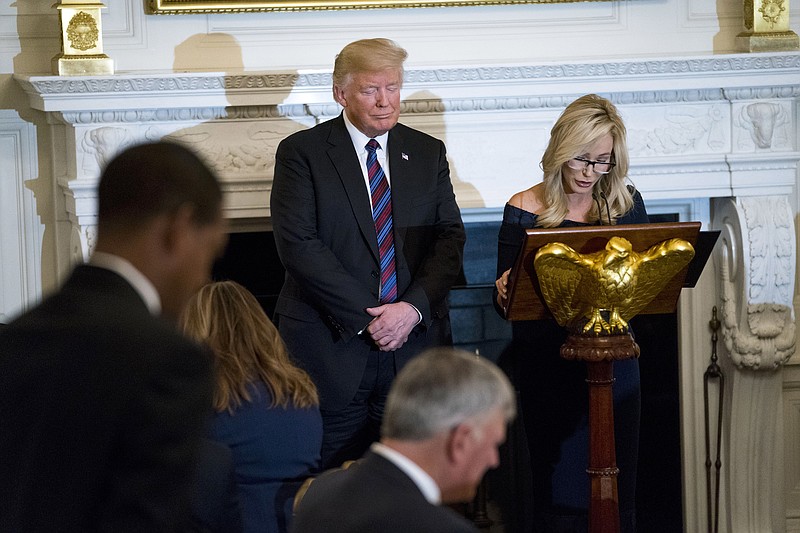EDITOR'S NOTE: This article is part of Religion: Got questions?, a series answering your biggest religious questions. Each week, we will answer one submitted faith question. To send a submission visit here or email wmassey@timesfreepress.com.
Question: If one of our country's founding principles is the separation of church and state, why are presidents allowed to have spiritual advisers that take an active role in influencing Christians' perception of the President?
Much ink has been spilled analyzing the president's spiritual advisers. From Paula White, the Florida megachurch pastor and adviser to President Donald Trump, to Joshua DuBois, who sent daily devotionals to President Barack Obama.
These individuals act as counselors to the commander in chief in a role that has stretched back across decades of administrations. While the First Amendment bars the government from establishing or regulating religion, the president is free to counsel with anyone, including spiritual advisers, without violating the amendment, said Michael McConnell, Stanford Law School professor and director of the school's Constitutional Law Center.
"Presidents may seek advice wherever they find it - whether political, economic, sartorial, historical, spiritual or anything else," McConnell said.
Congress or the courts can step in during a perceived threat to religious liberty only if the president does something that violates religious freedoms, said Douglas Laycock, University of Virginia School of Law professor of law and religious studies. To put it more plainly, the president's outputs are subject to constitutional scrutiny, not the president's inputs.
"If [the president] starts trying to encourage everybody to go to church or everybody to get a spiritual adviser, that's a different issue," Laycock said. "Where he gets information and advice from and the arguments he entertains and even the motives he has, the establishment clause doesn't really regulate any of that. It regulates what he does."
Almost all of the U.S. presidents have been Christian - the two exceptions being Thomas Jefferson and Abraham Lincoln - according to the Pew Research Center. A separate Pew study found that half of Americans say it is important for their leader to share their religious views, and an increasing percentage of members in both political parties say there is too little discussion of faith and prayer by political leaders.
Spiritual advisers have the difficult task of offering insight based on a morality independent of political parties and politicians, said Brie Loskota, University of Southern California Center for Religion and Civic Culture executive director. Loskota's work includes establishing and maintaining partnerships between governments and faith communities.
"[Advisers] do best when out of their particular faith traditions they can argue for good moral policies or policies that are values-based that may come out of a particular faith but are not simply a reflection of something that is parochial or preferential to a certain group," Loskota said.
While the advisers are often close to the politicians, and need to be in order to be effective counselors, they must be willing to hold politicians accountable to the ideals political leaders often use while running for office or pushing for legislation, she said.
"When religious leaders get involved in [politics] and they don't hold political leaders accountable, it creates an undermining of their moral authority because it makes it look like they're just in it for a political win or a loss," Loskota said.
If the public thinks faith leaders are only supporting a party or candidate to improve their own social or political platform, they erode public trust in religion, she said. Spiritual advisers always run the risk of being like Icarus, driven by vanity to fly too close to the sun, Loskota said.
Contact Wyatt Massey at wmassey@timesfreepress.com or 423-757-6249. Find him on Twitter at @News4Mass.
